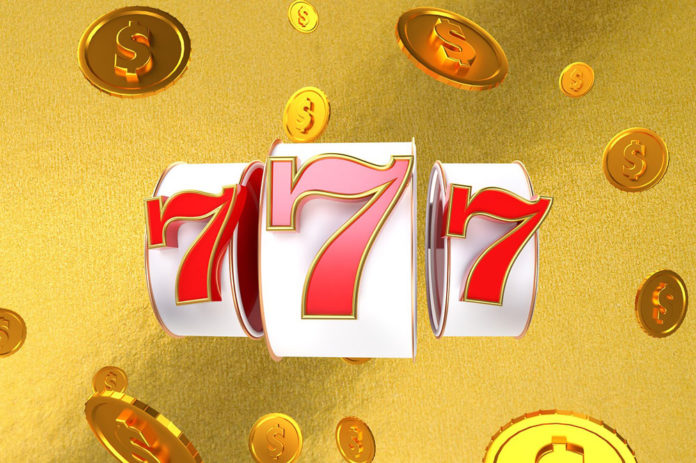
Published in cooperation between WSN and the Salinas Valley Tribune
What’s this loophole that’s got Californians buzzing? It’s the rise of sweepstake casinos, websites where players use two types of virtual coins (Gold Coins for fun, Sweeps Coins for real prizes) and play games without staking real money. Because of the “no purchase necessary” rule, these platforms slip under California’s online gambling ban. But there is a legislative effort underway to close the loophole.
For now, that structure lets users legally spin slots, hit blackjack, bet roulette and even enjoy sports-themed games, all under sweepstakes law. This article will break down the dual-coin setup, how Californians play under the law and much more.
Why Are They Legal in California?
California’s sweepstakes casinos avoid calling themselves gambling by using virtual Gold and Sweeps coins. There’s no real-money wagering, so operators don’t need a gambling license.
They lean on the state’s “no purchase necessary” rule under sweepstakes law (BPC § 17539.15), which says you can enter and win prizes without paying. That way, they can run games using chance and prizes without crossing into illegal gambling territory.
To stay legit, Sweeps Coins, those prize-linked tokens, must be obtainable without payment. If you had to pay or press “buy” to get them, it’d turn into an illegal lottery instead of a sweepstakes.
How Big Is This Market?
The social casino market in North America blew past $8 billion in 2024, up from $7.82 billion the previous year, fueled by growing smartphone use and interactive features like leaderboards and social chat.
In the United States, the sweepstakes model carved out a standalone industry valued at around $2.5 billion, driven by demand for legal online casino-style play.
California plays a major role here. Its regulatory gray zone and stalled real-money casino reforms have helped sweepstakes platforms thrive locally. Online gambling remains illegal in California, but that hasn’t stopped players from jumping onto these sites for slots, blackjack, roulette and a few games with a sports twist.
Which Platforms Are in Play?
In California, Pulsz.com, Chumba Casino, LuckyLand Slots, Mega Frenzy and Speed Sweeps are some of the most-used sweepstakes platforms right now. They balance bright visuals, flashy bonus offers and prizeable gameplay apparently without crossing legal lines.
These platforms run securely, with KYC (or know your customer) checks on signup, SSL encryption on data and often live chat or customer service. Users can hop in via mobile apps or web browsers, state-wide, without restrictions, though use may be blocked in specific counties or on tribal lands.
Who’s Pushing Back—and Why?
Tribal nations, including the California Nations Indian Gaming Association, argue these sweepstakes platforms undercut tribal gaming rights and tribal-state compacts by offering gambling-like games without oversight.
A class-action suit in Orange County targets Pulsz.com’s operator, claiming it illegally operates a real-money gambling platform under California’s Business & Professions Code.
The lawsuit says “free” Sweeps Coins are too limited and are just a front for gambling.
Meanwhile, Stake.us and other sites are also facing legal pressure, accused of exploiting vulnerable users via shady marketing, and prompting calls for bans.
What’s the Legislature Doing?
AB 831 is California’s bold move to outlaw sweepstakes casinos, mobile sports wagering and poker using the dual-currency loophole. It passed the Senate Governmental Organization Committee unanimously on July 8 and was confirmed by Light & Wonder Global Head of Government Affairs and Legislative Counsel Howard Glaser on July 15.
California is simply catching up with national trends. States like New York, Connecticut, Idaho, Washington and Montana have already banned this kind of play. With California’s tribes and lawmakers pushing hard, AB 831 is one of the strongest moves yet to shut off gambling through virtual coins.
What Could Happen Next?
If AB 831 becomes law, all sweepstakes platforms must either exit California or overhaul their models and lobby for a formal gaming license. Financial firms, like banks and payment processors, may be ordered to stop working with these operators, following federal enforcement trends.
Users may move to out-of-state platforms or the gray market if the games vanish locally. In response, operators might shift focus to other states with looser rules or make a case for regulated iGaming in California.
And What About Players?
Players should treat sweepstakes casinos as legal entertainment, not state-regulated gaming. Though platforms require ID verification (KYC) and use encryption, there’s no state agency protecting payouts or enforcing consumer safeguards. Winnings from Sweeps Coins count as taxable income, so hang onto your records.
If AB 831 passes, operators may vanish, along with your unused coins. Keep tabs on legal developments, check operator transparency on compliance and avoid banking on promises that could disappear overnight.
Conclusion
California’s sweepstakes casinos have filled a void using clever legal loopholes, entertaining millions with virtual coins instead of real money. But growing scrutiny from tribes, legislators and lawsuits shows the ride may end soon.
With AB 831 inching toward passage, operators and players face a turning point. Users should follow the bill, treat games like fun experiments, not investments, and be ready for the rules to shift underfoot.













